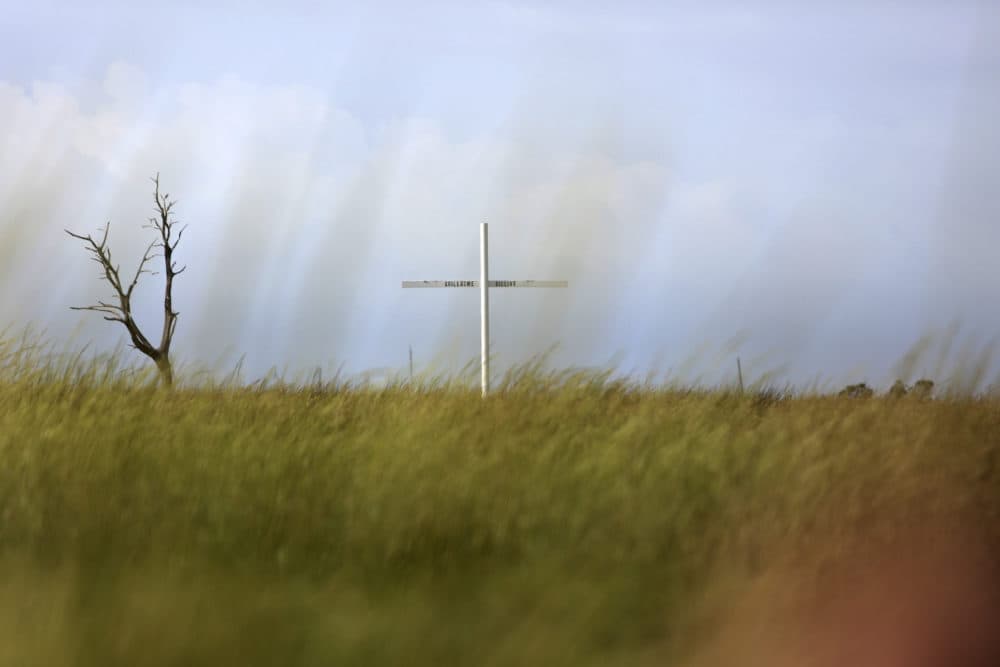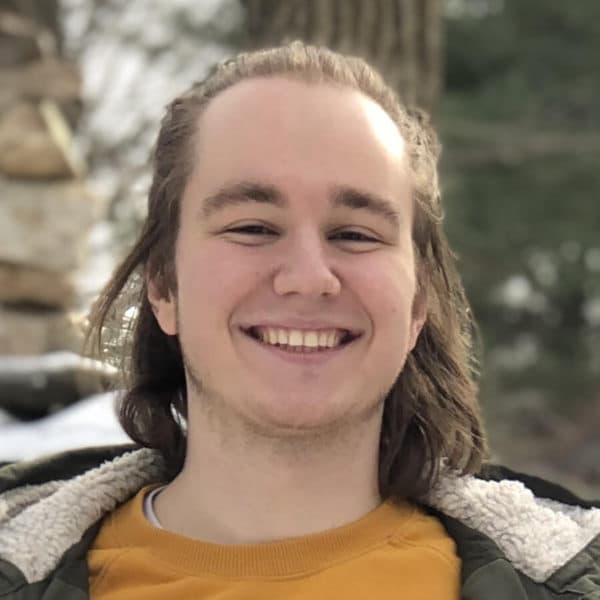Advertisement
Covering Climate Now: COP26
Bridging faith and science in the existential struggle against climate change
Resume
As the COP26 climate summit in Glasgow wraps up, one clear takeaway is that half measures and vague optimism won’t cut it.
Every day world leaders falter on their commitments to the planet, the window to avoid the worst consequences gets smaller and smaller. Experts and observers agree that immediate, drastic action is the best way to tackle this coming crisis, and that means compromises have to be made across political lines, ethnic and racial lines — and even religious lines.
But how can faith and science — belief in the unseen and cold hard evidence — be reconciled? And what role should institutions of faith play in an all-hands-on-deck response to climate change?
Katharine Hayhoe has been bridging the gap between faith and science in numerous talks around the country, as well as providing a roadmap for those conversations in her books. She’s the chief scientist for the Nature Conservancy, as well as a devout evangelical Christian.
“The cross-section of people here is just remarkable,” Hayhoe says. “I spoke to students this morning. I spoke to members of a low-lying island state this afternoon who are worried about rising sea levels and stronger hurricanes.”
Everyone — not just prime ministers, presidents and CEOs — needs to play their role in fighting climate change, she says.
Back in the U.S., Hayhoe lives and teaches in Texas, which she describes as the most vulnerable state to climate change. The problem, for Hayhoe, is getting Texans to agree on what exactly the problem is.
Hayhoe says climate change has been “the most politicized issue in the entire country” over the last decade. Science and religion don’t determine how people feel about climate — politics do, she says.
“When you talk to people in Texas, just about everyone will agree that the weather is getting weirder,” Hayhoe says. “But when we start to put a label on it and call it climate change, that's where it gets political.”
Hayhoe responds to the radicalization and politicization of the issue with an appeal to her faith, in a world where the majority of the population practice faith and religion in one form or another.
“I believe that we humans have responsibility over every living thing on this planet to care for and protect it,” she says. “I also believe that we are to care for the poorest and most vulnerable people among us.”
Connecting faith to climate helps remind people to care about others and advocate for action on their behalf, she says.
Hayhoe grew up in Toronto, the daughter of missionaries in the Plymouth Brethren, an evangelical Christian group. Her father taught science in church — but Hayhoe says the marrying of the two professions is considered uncommon in the U.S.
“Whereas in other countries,” she says, “they are much more reconciled and have been for hundreds and even thousands of years. Christians believe that the Bible is God's inspired word. And Christians also believe that the universe was created by God. And so if the two things came from the same place, how could studying one or the other possibly be in conflict with it?”
In her talks around the country, Hayhoe says one of the most common “religious-y” objections to the effects of climate change is the idea that:
- God is perfect.
- God created a perfect Earth.
- Therefore, humans are not able to affect the planet to the point that it becomes inhabitable.
Hayhoe’s response to that? Free will.
“We do believe that God created the perfect home for us, but then He gave us free will, and the Bible is full of warnings that we reap what we sow,” she says. “Why are all these instructions peppered throughout our sacred texts? Because we have the ability to make choices — good or bad.”
But Hayhoe belongs to a specific sect of one world religion, when the picture of faith on this planet is much larger: Islam, Judaism, Hinduism, to name a few. Different gods, different belief structures, different approaches to life and what comes after.
The differences between these religions seems insurmountable, especially when the history of bloody conflict and struggle in the name of faith is examined, but Hayhoe says that there is a lot these religions have in common in their core tenets.
“The concepts of being good stewards or caretakers or being responsible for nature. The concepts of caring for other species and walking lightly or treading lightly upon the Earth,” she says. “The idea of karma and dharma, and the idea of charity of love for others, of care for others who are less fortunate than us.”
No matter how much Hayhoe explains, illuminates, pleads or writes, she says there is a group of Americans — 7%, according to a 2020 Yale study — that are dismissive of climate science and the consequences of a warming planet.
“They are the ones who are absolutely convinced this is a hoax and they drag it up at every Thanksgiving dinner, every Facebook post, every chance they get,” Hayhoe says. “My personal definition of dismissive is someone who, if an angel from God with brand new tablets of stone saying global warming is real, appealed before them, that would not be enough to change their mind. And if that wouldn't be enough, why would I think I could?”
So how does she reach them? Plainly said, she doesn’t because she doesn’t need to.
That 7% are dismissive, but that same study shows that 70% of people are concerned about climate change, a number that increases to 83% when mothers are surveyed and 84% when young people are.
“The vast majority of us truly are already worried, but we don't know what to do about it,” she says. “So when we talk about climate change, it's not about piling on the doom-filled facts. It's about talking about what's happening, where we live, how it's affecting our lives, the people, the places, the things that we love and what are positive, constructive things that we could do working together.”
This story is part of Covering Climate Now, a project aimed at strengthening the media’s focus on the climate crisis. WBUR is one of 400+ news organizations that have committed to a week of heightened coverage around the COP26 climate summit in Glasgow. Check out all our coverage here.
Alexander Tuerk produced this interview and edited it for broadcast with Peter O'Dowd and Todd Mundt. Tuerk also adapted it for the web.
This segment aired on November 12, 2021.

